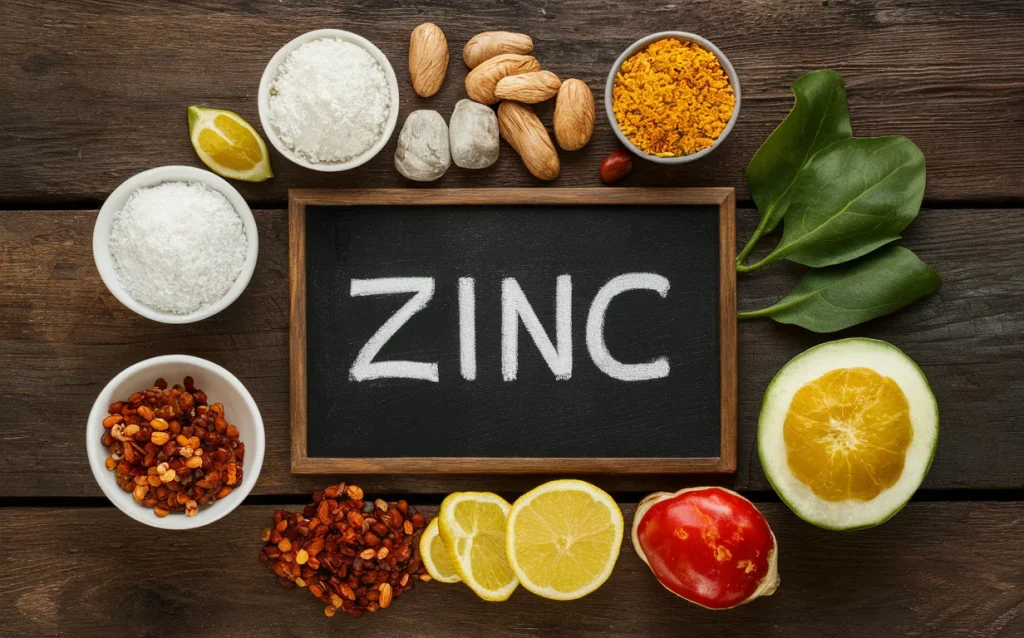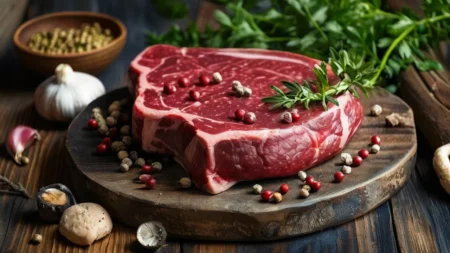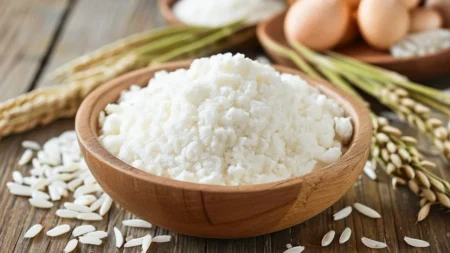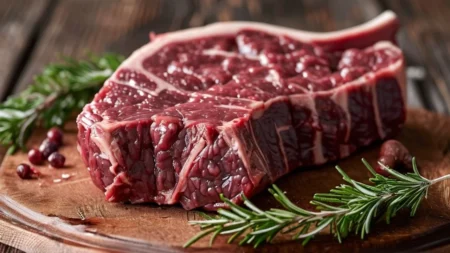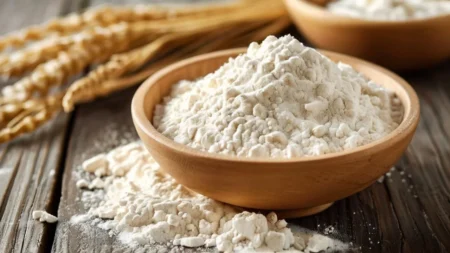Zinc is a vital mineral that plays a crucial role in maintaining a healthy immune system. Not only does it support the body’s defense against viruses and bacteria, but it also aids in wound healing and DNA synthesis. Incorporating zinc-rich foods into your diet or considering zinc supplementation can help ensure optimal immune function, especially during times when your immune health is crucial.
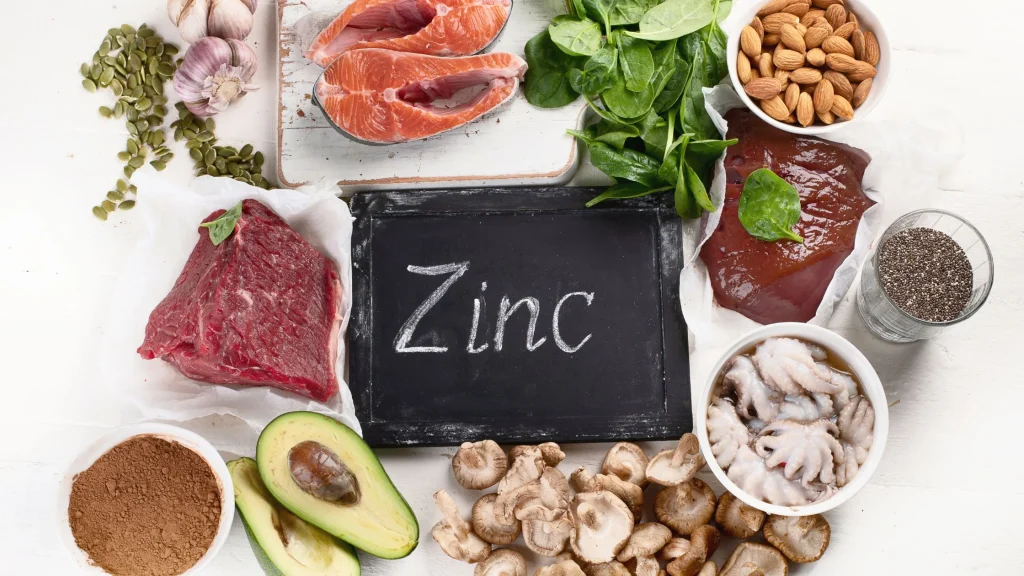
Key Takeaways:
- Zinc is essential for maintaining a strong immune system.
- It plays a role in wound healing and DNA synthesis.
- Zinc can be obtained from both food sources and supplements.
- Zinc deficiency can lead to a weakened immune system.
- Consult a healthcare professional for personalized advice on zinc intake.
Understanding Zinc: Sources and Metabolism
Zinc is an essential mineral that plays a crucial role in various bodily functions. It is necessary for supporting overall health, including a healthy immune system, wound healing, and DNA synthesis. Understanding the sources and metabolism of zinc is key to ensuring optimal intake and utilization of this important nutrient.
Zinc Sources:
Zinc can be obtained from a variety of dietary sources. Some of the best sources of zinc include:
In addition to these food sources, zinc can also be obtained through zinc supplements. These supplements come in various forms, such as zinc gluconate, zinc acetate, and zinc sulfate. It is important to consult with a healthcare professional before starting any new supplementation regimen.
Zinc Metabolism:
Once consumed, zinc undergoes a complex process of absorption, distribution, and excretion within the body. The absorption of zinc primarily takes place in the small intestine, where it is then transported to various tissues and organs through the bloodstream. Zinc is also stored in the liver, pancreas, and bones. Excess zinc is excreted primarily through the kidneys.
Zinc plays a vital role in the activity of over 300 enzymes, which are involved in numerous biochemical reactions in the body. These enzymes are responsible for processes such as cellular respiration, DNA replication, and protein synthesis. Additionally, zinc is involved in immune function, as it helps regulate the production and activity of various immune cells.
It is worth noting that the absorption and metabolism of zinc can be influenced by various factors, including the presence of other nutrients in the diet and certain medical conditions. Therefore, it is important to maintain a balanced diet and consult with a healthcare professional for personalized guidance on zinc intake and metabolism.
Zinc Deficiency: Causes, Symptoms, and Effects
Zinc deficiency occurs when the body doesn’t have enough zinc to perform its essential functions. There are various causes of zinc deficiency, including inadequate dietary intake, poor absorption, increased need for zinc, and certain medical conditions that affect zinc metabolism.
One of the primary causes of zinc deficiency is a diet low in zinc-rich foods. Zinc is predominantly found in foods such as meat, shellfish, legumes, nuts, and seeds. Vegetarians and vegans who don’t consume animal products may be at a higher risk of zinc deficiency if they don’t carefully plan their diet to include alternative sources of zinc.
Another cause of zinc deficiency is impaired absorption. Conditions like Crohn’s disease, celiac disease, and other gastrointestinal disorders can lead to malabsorption of zinc, preventing it from being adequately absorbed by the body.
In addition to the causes, recognizing the symptoms of zinc deficiency is crucial for prompt intervention. Common symptoms include impaired immune function, delayed wound healing, hair loss, loss of appetite, weight loss, and changes in taste and smell.
Furthermore, zinc deficiency can have significant health effects on various body systems. It is known to impact immune function, making individuals more susceptible to infections and illnesses. Zinc plays a crucial role in wound healing and repair, so a deficiency can impair the body’s ability to heal wounds efficiently.
“Zinc deficiency can lead to impaired immune function, delayed wound healing, hair loss, loss of appetite, weight loss, and changes in taste and smell.”
Moreover, zinc deficiency has been associated with disruptions in growth and development, cognitive impairment, and fertility issues. It is important to address zinc deficiency and replenish zinc levels to mitigate these potential health effects.
Scientific studies have shown that zinc deficiency can have a significant impact on immune function, wound healing, and overall health. It is crucial to identify and address zinc deficiency promptly to support optimal bodily functions.
Zinc Deficiency Symptoms:
- Impaired immune function
- Delayed wound healing
- Hair loss
- Loss of appetite
- Weight loss
- Changes in taste and smell
Addressing zinc deficiency requires a comprehensive approach, including dietary modifications and, in some cases, zinc supplementation under the guidance of a healthcare professional.
| Zinc-Rich Foods | Zinc Content per Serving |
|---|---|
| Beef | 7 mg |
| Poultry | 2-3 mg |
| Shellfish (oysters, crab) | 9-10 mg |
| Lentils | 2.5 mg |
| Pumpkin seeds | 2.2 mg |
Getting Your Daily Dose: Zinc Daily Intake and Dosage
Zinc is an essential mineral that plays a crucial role in many bodily functions, including immune health, DNA synthesis, and cell division. To reap the benefits of zinc, it’s important to ensure you are getting an adequate daily intake. The recommended daily intake of zinc varies depending on age and gender. Here is a breakdown of zinc daily intake recommendations:
Zinc Daily Intake Recommendations
| Age Group | Male | Female |
|---|---|---|
| Infants (0-6 months) | 2 mg* | 2 mg* |
| Infants (7-12 months) | 3 mg* | 3 mg* |
| Children (1-3 years) | 3 mg | 3 mg |
| Children (4-8 years) | 5 mg | 5 mg |
| Children (9-13 years) | 8 mg | 8 mg |
| Adolescents (14-18 years) | 11 mg | 9 mg |
| Adults (19 years and older) | 11 mg | 8 mg |
*Note: The higher zinc daily intake recommendations for infants (0-12 months) are due to their rapid growth and development.
In addition to obtaining zinc from dietary sources such as meat, shellfish, legumes, and nuts, some individuals may need to supplement their intake with zinc supplements. When considering zinc supplementation, it is important to consult with a healthcare professional to determine the appropriate dosage. The recommended dosage for zinc supplements typically ranges from 5-30 mg per day, but this can vary depending on individual needs and zinc levels in the body.
It’s essential to strike a balance and not exceed the recommended dosage, as excessive zinc intake can lead to adverse effects. Additionally, keep in mind that zinc is best absorbed when taken with a meal, as certain foods can enhance its absorption.
Remember, while zinc is an important mineral for overall health, it is just one piece of the puzzle. A well-rounded and balanced diet that includes a variety of nutritious foods is crucial to ensure you are meeting all your nutritional needs.
Conclusion
In conclusion, zinc is an essential mineral that offers numerous health benefits for the body. From supporting a strong immune system to aiding in wound healing and DNA synthesis, zinc plays a vital role in various bodily functions.
By incorporating zinc-rich foods into your diet, such as oysters, beef, pumpkin seeds, and fortified cereals, you can naturally boost your zinc intake. However, it’s important to note that excessive zinc supplementation can lead to adverse effects.
While zinc offers a wide range of health benefits, it’s crucial to consult with a healthcare professional before starting any new supplementation regimen. They can provide personalized advice based on your specific needs and ensure you are taking the appropriate dosage to avoid any potential side effects.
Incorporating zinc-rich foods into your daily meals, along with proper supplementation guidance, can help you optimize your overall health and well-being. So, make sure to prioritize zinc intake as part of a balanced and nutritious diet.
FAQ
What are the benefits of zinc?
Zinc offers numerous benefits, including boosting immune health, promoting wound healing, supporting proper growth and development, aiding in DNA synthesis, and enhancing cognitive function.
How can I get zinc from dietary sources?
You can obtain zinc from various food sources such as oysters, beef, poultry, beans, nuts, whole grains, and dairy products. Consuming a balanced diet that includes these zinc-rich foods can help ensure an adequate intake of this essential mineral.
Can zinc supplements be helpful?
Yes, zinc supplements can be beneficial, especially for individuals who may have difficulty meeting their daily zinc requirements through diet alone. However, it’s important to consult a healthcare professional before starting any supplementation regimen to determine the appropriate dosage and ensure it aligns with your specific needs.
What are the symptoms of zinc deficiency?
Symptoms of zinc deficiency can include weakened immune function, delayed wound healing, hair loss, skin problems, loss of appetite, and impaired sense of taste and smell. These symptoms may vary depending on the severity of the deficiency.
What are the potential side effects of zinc supplementation?
While zinc supplementation is generally safe when taken as directed, high doses can cause adverse effects such as nausea, vomiting, diarrhea, and copper deficiency. It’s crucial to follow the recommended dosage and consult a healthcare professional if you have any concerns.





